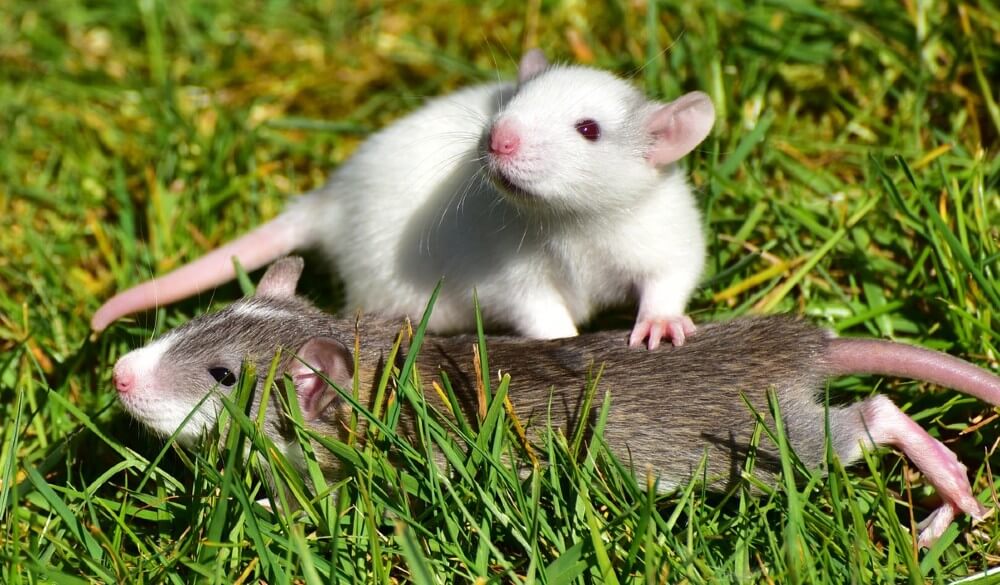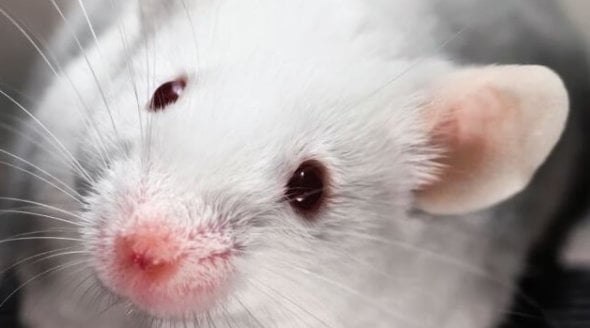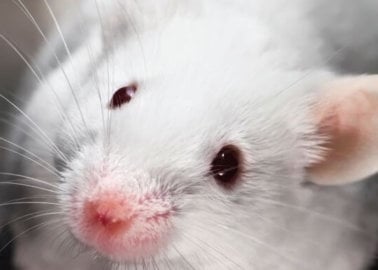COVID-19 Proves We Can’t Waste Time on Animal Tests – Help PETA End Them
With over 4 million confirmed cases of COVID-19 worldwide, we need effective treatments and vaccines. We can’t waste time on ineffective animal testing – and luckily for us, the authorities responsible for approving medicines agree.

In a watershed moment in history, medicines regulators around the world – including the European Medicines Agency (EMA), UK Medicines and Healthcare Products Regulatory Agency, Dutch Medicines Evaluation Board, and US Food and Drug Administration (FDA) – have responded to the pandemic by prioritising human clinical trials over animal testing. Now, PETA and our affiliates are asking these agencies to seize this opportunity to stop requiring cruel, wasteful animal tests for all drugs – not just treatments for COVID-19.
Despite the existence of human-relevant, non-animal tests, medicines regulators have insisted for decades that there’s no way to bring a new drug to human clinical trials without first testing it on thousands of animals. But in the face of pressure to develop medicines to prevent or treat COVID-19 quickly and safely, these agencies have taken actions proving that this is not the case.
Last month, for the first time in history, both the FDA and the US National Institutes of Health (NIH) greenlighted a landmark human clinical trial of a vaccine without first requiring extensive animal tests. Companies are usually required to spend years putting animals through the agony of new product tests before human clinical trials are allowed to begin, even though those animal tests don’t predict whether a drug will work in humans.
But in this case, the company started developing a COVID-19 vaccine in January, and by March, the FDA and NIH both agreed: it’s time to see whether this vaccine is effective in humans. And that’s just the tip of the iceberg – there are many similar trials up and running and in the planning stages.
Ninety-five per cent of drugs that pass tests in other species fail in humans. Skipping irrelevant animal tests avoids this delay in bringing life-saving drugs to market and allows resources to be focused instead on human-relevant, non-animal test methods. It also avoids the possibility of abandoning a drug that might save human lives just because it doesn’t work in other animals.
Avoiding misleading tests on animals and asking human volunteers to give blood has sped up access to potentially life-saving treatments for COVID-19.
The most readily available treatment for COVID-19 and certain other diseases – called convalescent plasma – comes directly from humans who have recovered from the illness. This treatment doesn’t use a single animal – just the antibodies made by the human immune system to fight off infection. Two human clinical trials testing this promising treatment are already underway in Europe.
The writing is on the wall: animal tests are a barrier to getting safe and effective medicines and vaccines for humans onto the market quickly.
In all animal tests, the animals – with their complex emotions, sensitivities, and personalities – are treated as if they were inanimate laboratory equipment. They’re burned, mutilated, restrained, and pumped full of toxic chemicals and deadly pathogens. We can’t imagine the terror that every single animal trapped in a laboratory must feel day in and day out.
Medicines regulators recognise that non-animal methods are the future of drug development. In its “EMA Regulatory Science to 2025” strategic reflection report, the EMA noted that modern, human-relevant techniques that don’t involve animals – including using human cells and organoids and running sophisticated computer simulations – have great potential to benefit and support drug development.
Now, it’s time for the medicines regulators to put these words into action.
Join the Humane Science Revolution
The tide is turning, and more and more governments, regulators, and scientists are adopting research and testing methods that benefit humans without harming animals. Help keep up this momentum by urging the UK government to modernise biomedical research and regulatory testing and to commit to ending the use of animals in experiments:




